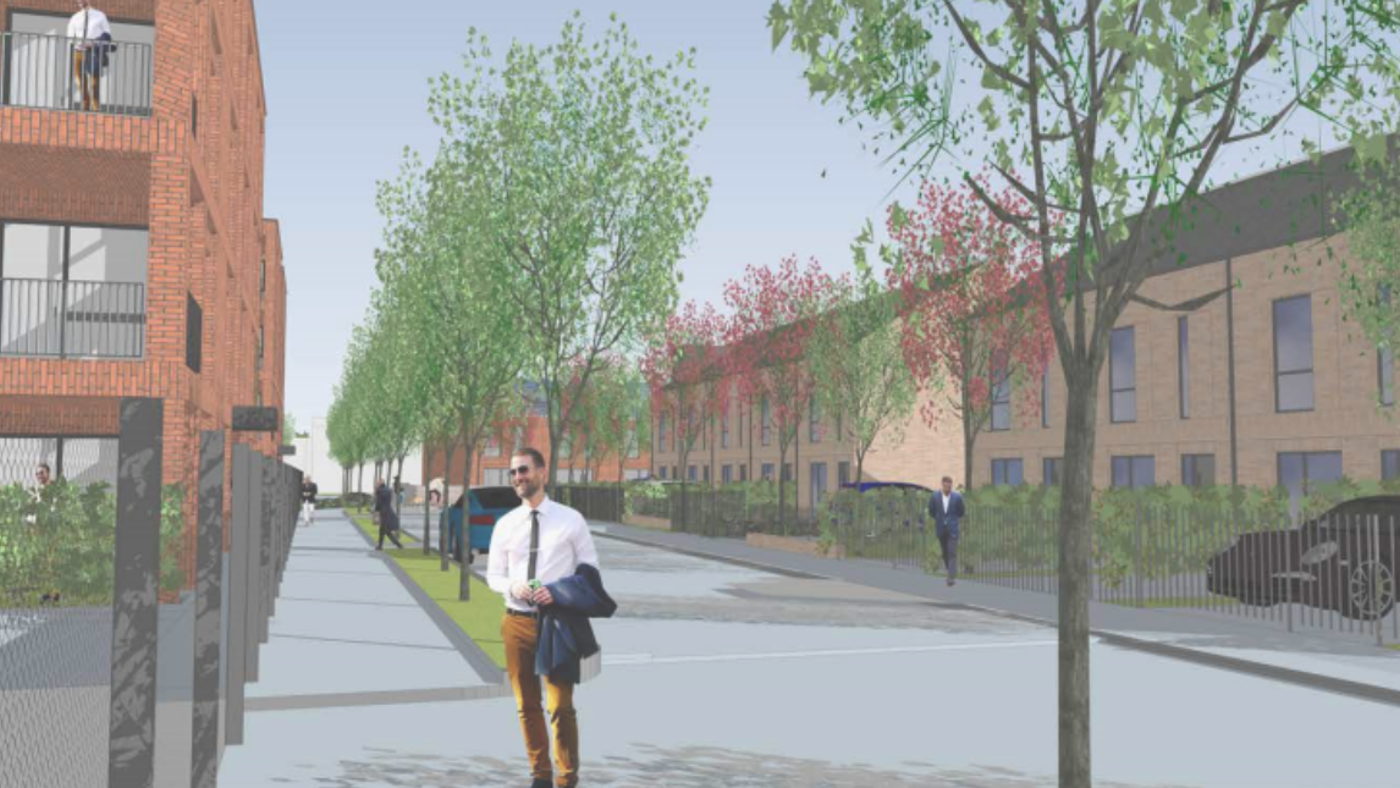There’s some exciting projects in the works - and ongoing - that continue to help us cut carbon and reduce bills for residents.
Just in time for ‘Clean Air Day’ (17 June) last week, a planning application was submitted for 69 low carbon social homes in Newton Heath.
We’ll be managing the homes, which will include 17 three-bedroom houses with solar panels and 48 apartments with living roofs and walls.
There will also be Ground Source Heat Pumps (GSHPs), electric vehicle charging points, and mechanical ventilation with heat recovery to keep costs down for residents.
The development is being part funded through the Government’s Brownfield Land Fund.
Homes As Energy Systems
In the meantime, we’re getting on with a range of other green energy projects, fitting ground source and air source heating at various properties and blocks across north Manchester.
Hundreds of homes have already been fitted with the technology so far, including almost 70 properties at Liverton Court in Higher Blackley where we’ve just recently installed a GSHP.
Drilling is now underway at Rushcroft Court and Pevensey Court in Charlestown to enable tenants there to benefit from ground source heating too.

(Drilling work underway at Pevensey Court)
It’s all part of the ‘Homes As Energy Systems’ (HAES) project we are working on with our partners to install energy-efficient technology in over 700 homes across Greater Manchester.
The HAES project is funded by the European Union, with £5million coming through the European Regional Development Fund.

Carbon cut by almost half
Cutting carbon is a huge passion for us. Since 2005, we’ve spent £80million on making our homes more energy efficient and reduced carbon emissions from them by 48%.
These projects and others we’re working on will help us to build on that reduction and play a part in helping Greater Manchester reach its target to become carbon neutral by 2038.




